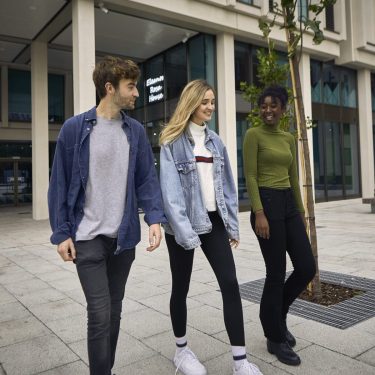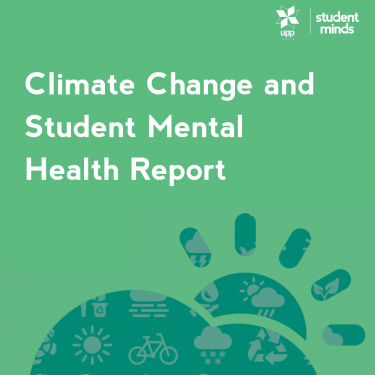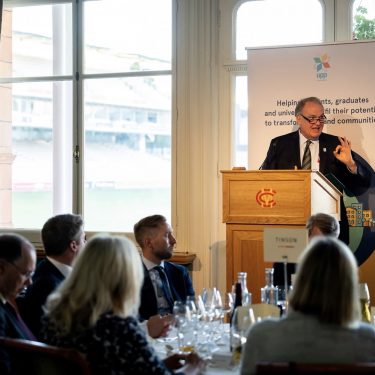
The UPP Foundation is supporting Become, the charity for children in care and young care leavers, to create a free factsheet about care leavers’ rights and entitlements in higher education. Here, Sarah Young, who leads on Propel, the charity’s online higher education resource, discusses why the factsheet is needed.
Just six per cent of care leavers are in higher education at the age of 19.
Pretty shocking, isn’t it? Put it this way; if you’ve spent time in care, you’re around six times less likely to go to higher education at the same time as your peers.
Children and young people are taken into care either because it is unsafe for them to be at home, or because their parents are unable to look after them. It’s not their fault that they are in care. These are young people who have had the state intervene in their lives in the most extreme way possible. The state – and it can be argued, all of us – share a responsibility to ensure that they succeed as adults.
Like all young people, care leavers all have their own unique talents and interests. But unlike other young people, many do not have an adult in their lives who talks to them about their future, who asks them to consider their options, or helps instil the confidence to believe that they could achieve or raise their ambitions by going into higher education.
In fact, when we spoke to young people earlier this year for our Perceptions of Care report, over a third felt that social workers thought children in care were not as clever as other children. Only 56 per cent felt that social workers were ambitious for them and only 48 per cent thought that teachers expected children in care to do well in school. One said: “I was a straight A student […]. My social workers told both me and my foster parents that children in care don’t go to university and to stop encouraging me.”
Therefore, for many children and young people with experience of care, knowing about and having the confidence to see themselves in higher education are the first barriers to overcome. Of course, there are other barriers too. Many care leavers will have experience of a range of challenges – both related to why they spent time in care, and because of their time in care – which can affect their educational outcomes. For example, pre-care experiences can have an impact on mental wellbeing, and disruption to schooling, perhaps while moving through a number of foster placements, can impact on academic results.
For those who reach the point of considering their future in higher education, many worry about how they would finance their studies. There are also considerations such as where they would live out of term-time, as many will not have somewhere to return to in the holidays.
Time for some good news.
There has been a lot of positive work in widening participation over recent years and increasingly, universities and FE colleges which offer higher education courses are responding to the specific needs of young people who have spent time in care. Institutions often have a specific staff member who has responsibility for supporting care-experienced students, and universities and colleges offer support ranging from accommodation out of term-time, to bursaries and additional welfare provision.
Become is working to increase both access, and aspiration, to higher education for care-experienced young people with Propel, our online education resource. Using Propel, care leavers, and the carers and professionals supporting them, can compare the support offered by different universities and FE colleges. Propel also gives young people the chance to read inspirational stories from care-experienced students who have successfully made the transition from care to higher education.
Thanks to the generous support of the UPP Foundation, we are excited to be creating a free factsheet providing core information about care leavers’ rights and entitlements in higher education which will complement our work with Propel. Become already has a highly successful series of factsheets on various aspects of life in and after care, used by thousands of young people and professionals. Like the rest of the series, we will be translating the higher education factsheet into six languages commonly spoken among young asylum seekers and refugees. The factsheet will help ensure that more care-experienced young people know about and access their statutory rights in higher education. It’s all part of Become’s mission: to ensure more care-experienced young people are empowered to take control of their lives and unleash their potential.







